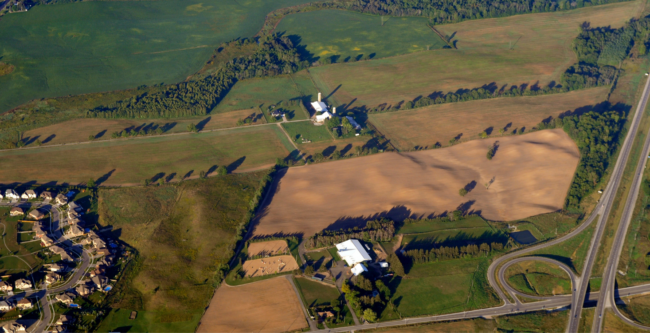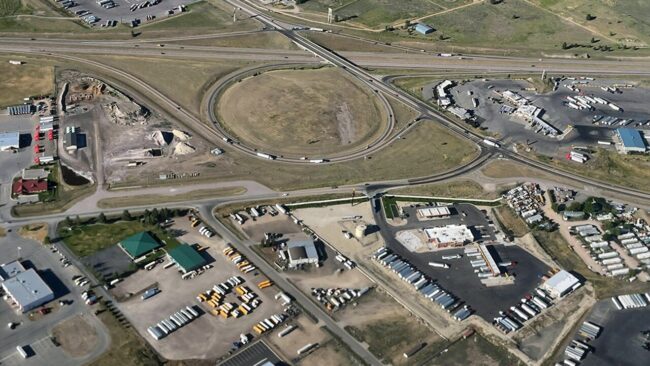
By Laura Collins
Montana’s Subdivision and Platting Act (MSPA) is intended to ensure the orderly growth and development of communities, public health and safety, and the protection of our environment. However, divisions of land created under the “family transfer” exemption — that is, when transferring land to immediate family member(s) — are not subject to the same level of analysis and are exempt from the comprehensive review that is required under the MSPA.
Family transfers were originally envisioned to benefit families, primarily agricultural producers, by offering a simple method to convey equity to children. The exemption was intended to ease the process of inheritance and estate planning for families. By permitting these transactions without full review, the exemption was meant to simplify these processes for family members who wish to keep their land within their family.
In order to qualify for a family transfer exemption, an applicant must demonstrate that the transfer is not an attempt to evade the subdivision law. Unfortunately, local jurisdictions are often unable to verify the accuracy of those promises or powerless to enforce the law when it becomes obvious that an evasion has already occurred.
Despite its intended use, family transfer has increasingly become a target for fraud in Montana. This gaping loophole in land use law has been taken advantage of for decades to evade subdivision review. It is the go-to process for developers and landowners who seek to avoid the protective measures and, in some cases, the public process that the normal development review requires. By claiming family transfer, developers can easily create unplanned and underserviced subdivisions only to be sold on the market soon after the transfer occurs.
The lack of comprehensive review under the family transfer exemption means that developments can proceed without consideration of environmental impacts, community integrity, or provisions for adequate infrastructure. Instead of these costs being borne by the developer, they are passed on to the taxpayer. Meanwhile, they avoid scrutiny and expense and contribute to exurban sprawl.
The majority of exempt divisions of land do not occur on public water and sewer systems. Instead, they rely on wells and septic systems, the accumulation of which introduces contaminants like nitrates into aquifers, endangering the drinking water of rural communities, degrading valuable water resources, and leaving senior water rights holders to face the threat of diminishing water availability. Environmental impacts extend beyond water resources. Unregulated development leads to increased soil erosion, habitat destruction, and greater vulnerability to natural disasters such as floods and wildfires. Fragmentation of Montana’s diverse ecosystems due to unchecked development threatens biodiversity and disrupts wildlife corridors, further degrading critical natural resources.
Local governments are often burdened with the financial costs for developments that do not contribute adequately through impact and review fees required as part of subdivision review. This strains community resources for services such as police, fire, and schools, and limits the ability of local governments to address growth and development issues effectively. Ultimately, these impacts are passed on to local taxpayers.
Meanwhile, residents of small towns are caught off-guard by sudden, unnotified developments, and buyers could end up with land they can’t legally access or obtain water rights for. Properties may be in floodplains or on steep, unbuildable slopes. Driveways, if any, may not be wide enough for emergency vehicles, and increased traffic can negatively affect local roads — all issues that would have been addressed in the normal subdivision process but are ignored under the family transfer exemption. As development consumes land available for agriculture, hunting, and recreation, it erodes a way of life that is both irreplaceable and invaluable. Once land is developed, there is no going back.
In the face of an ever-growing number of family transfer applications, capacity-strapped municipalities have a narrow scope of analysis and timeframe to identify subdivision evasion. Guided by weak statutes and limited in their ability to identify and prevent abuses, reviewing departments are subsequently pressured to approve most requests. What’s more, the penalties for violating the exemption — totaling a whopping fine of $5,000 per infraction — are woefully inadequate to deter abuse considering that the profit of sale will outweigh any fines many times over. Besides, there is no legal recourse to undo a land division once it has occurred.
With no shortage of incentives to exploit this loophole, developers are allowed to profit without regard for the community. It’s no wonder consultants, realtors, and their clients are taking advantage of this screaming deal. This is the reason so many family transfers are quickly sold to a third party without any consequence. These abuses are nothing less than a slap in the face to landowners who adhere to the law despite the cost and inconvenience, but do so because it is legally required and benefits their neighbors.
Despite longstanding public concerns regarding family transfer fraud, abuses continue to be untracked and under-investigated. Meanwhile, the legislature has only weakened restrictions over the years. The debate over property rights, and more recently, the availability of affordable housing have kept these loopholes enshrined in law. It seems the political will is not yet present to protect Montana from being overrun by a lack of common-sense protections for our communities and our environment.
The family transfer exemption as it stands poses far too great a deficiency in regulation and results in disorderly, unplanned development of lands across Montana. If this exemption is to exist at all, its inadequacy to prevent abuse needs to be addressed in legislation. MEIC will continue to push for the closing of this egregious loophole and the enforcement of land use policies that are centered in building sustainable communities with the input of neighbors and the oversight of local governments.

Missoula is no stranger to family transfer exemption conflicts. This area near Wye was the subject of a conflict in 2022. Image via Missoula Current.
This article was published in the October 2024 issue of Down To Earth.

